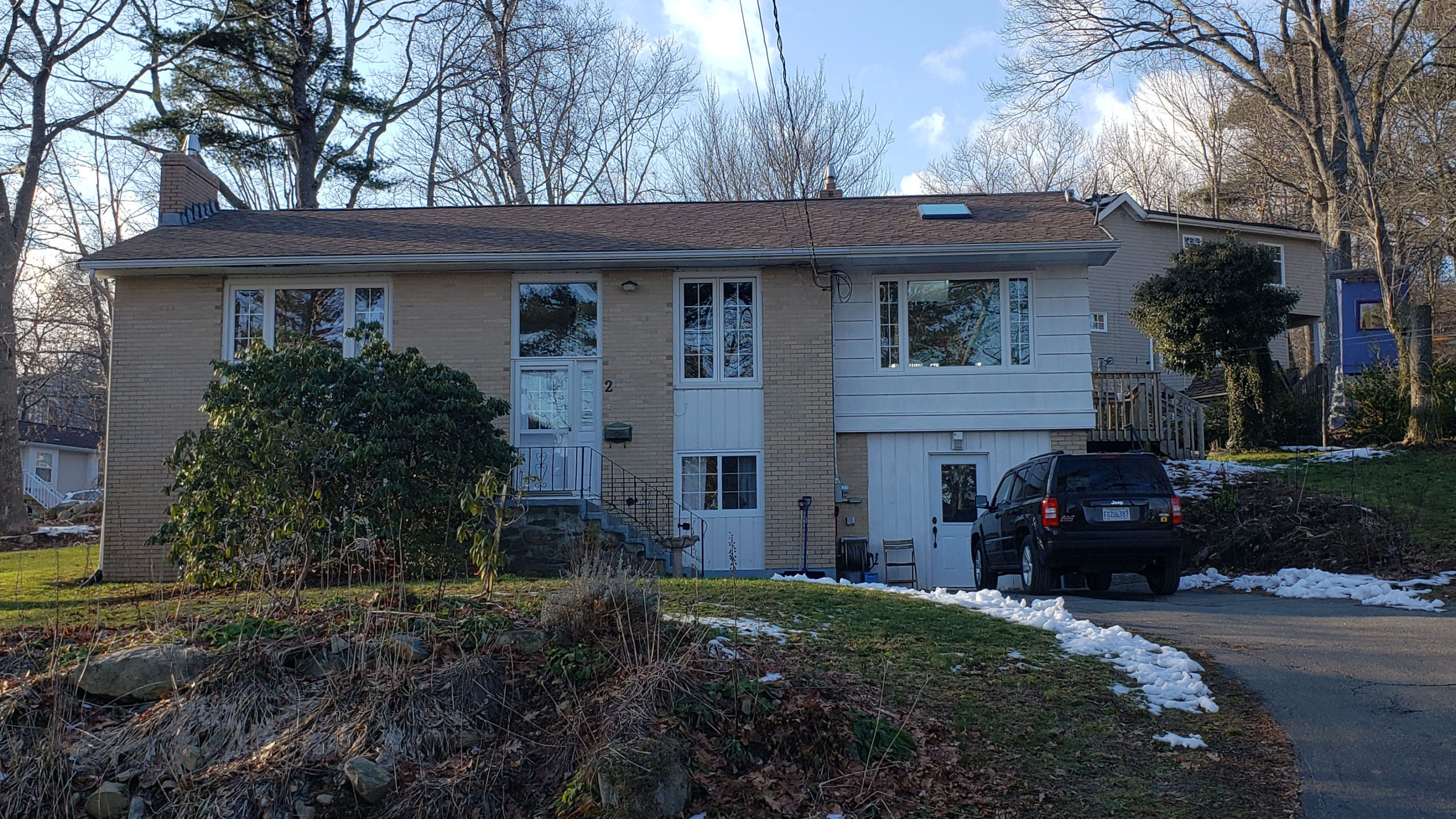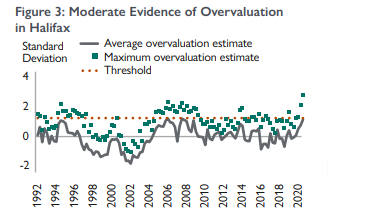Experts say COVID-19 causing house prices to spike in Halifax
Factors like interprovincial migration, supply chain disruptions, have led to a supply and demand issue

caption
2 Second Street, Bedford. Listed for $899,900 on Royal LePageA house in a small neighbourhood of Bedford is selling for $899,900 — more than three times its assessed value.
The house itself is a simple two-storey, four-bedroom dwelling with a short driveway situated on a hillside overlooking the Bedford Basin.
Housing prices like this one have been rising in Halifax, and some experts are blaming COVID-19.
In December, the Canada Mortgage and Housing Corporation (CMHC) released its quarterly housing market assessment for Canada. Halifax’s housing market vulnerability rose from low to moderate, which means that the cost of housing is outpacing what some locals can afford.

caption
Figure Credit CMHCKelvin Ndoro is the senior analyst at the CMHC.
“What we see has been a result of increased demand with the supply not keeping up,” Ndoro said in an interview.
This is making it harder for some people to buy a home in Halifax.
Zuleika Chan is a recent homebuyer. She bought her house for $50,000 over asking.
She said her parents were amazed, and told her they’d never had to bid on a home while they were looking years ago.
But now, “if you want it, you gotta offer the most amount of money,” said Chan.
She feels the market is getting out of control.
“If you find out there’s six other bidders in the game that want the same home, that’s when the cost becomes unobtainable,” Chan said.

caption
James Dwyer is a real estate agent with Engel & Völkers. He is not selling the Bedford house, but sees it as representative of the city’s current situation.
“We are in a seller’s market,” he said.
Dwyer cited a number of factors for why prices are on the rise in the Halifax Regional Municipality.
They include interprovincial migration from provinces harder hit by the coronavirus, and the shift from work in the office to home, allowing people to live elsewhere.
All of these factors have led to a supply issue.
“Usually builders pick up the slack when this happens,” said Dwyer.
However, because of COVID disruptions, supplies, materials and appliances have all seen chain disruptions.
The time it takes to build a house is increasing because of coronavirus restrictions slowing down the building process because fewer workers can be on site or work on jobs at once.
“The average house takes about six months to build…then it was seven months, eight months, nine months, 10 months,” said Dwyer.
Solutions are not simple: expert
He said what needs to be done is the expedition of building projects, more building permits being issued by the city, and deregulation of the process for building new homes.
Ndoro noted that if supply catches up, this will help. However, he warned that things might not be that simple. Deregulation and expediting more building could lead to overbuilding, which would have its own effect on the market and local economy as prices drop with increased supply.
If overvaluation trends stay the same, Ndoro said there is a likelihood that Halifax’s housing market vulnerability could rise from moderate to high.
At the moment, Dwyer said from a national perspective prices in Halifax are “low.”
Of Canada’s top 14 housing markets, Halifax has the lowest medium sales price.
About the author
Nathan Horne
Nathan Horne is a journalist interested in breaking stories that highlight the inequalities and injustices in society.

p
p